

Updated July 29, 2025
Social media has changed the consumer-company relationship. Consumers want to be heard and expect businesses to acknowledge comments on social media, according to a survey of 532 U.S. social media users.
Social media presents a new dimension of possibilities and challenges for public relations (PR) and businesses around the world. It rebrands the concept of community and redefines the ways consumers and brands communicate.
Clutch surveyed 532 social media users to find out what consumers expect from companies on social media and how these virtual interactions may impact their view of brands.
Looking for a Digital Marketing agency?
Compare our list of top Digital Marketing companies near you
Businesses can use this report to learn what their customers want from them on social media and how social media can be an effective PR tool.
Before social media, consumers were limited in how far they could take complaints, beyond contacting customer service or telling others in their community.
Social media changed this. Now, consumers instantly can voice public comments about companies.
Consumers expect companies to engage with public comments, whether it’s on a scathing review on Yelp, a tweet of praise, a comment on a YouTube video, or a Facebook complaint.
Seventy-six percent (76%) of social media users expect companies to respond to comments about their brand on social media.

Social media is now an extension of most people’s daily lives, and people expect businesses to engage with them.
“I see [social media] as a way for brands to speak directly to their consumers,” said Matt Kovacs, president of Blaze PR agency in Los Angeles. “That’s where people expect the world to rotate.”
Businesses can take advantage of the open communication social media offers by engaging with customers.
Consumers expect businesses to keep up in an age of instant comments, views, and communication.
Eighty-three percent (83%) of people expect companies to respond within a day or less, and 38% of people expect companies to respond in an hour or less.
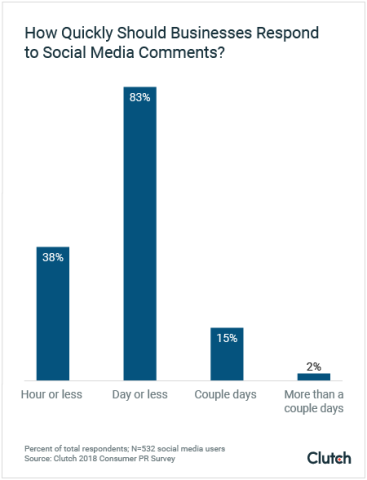
Only 2% of people find it acceptable for companies to take more than a couple of days.
Businesses that are learning how to manage comments on social media may find this expectation intimidating, but the key is to make consumers feel validated and heard.
“You need to address the negativity by responding, acknowledging, and contacting the person,” said Sameer Somal, co-founder of Blue Ocean Global Technology, a digital marketing and technology planning firm. “A lot of times, people just want to be heard … If there’s negativity out there and you don’t respond, [then] there’s kind of validation to it. You need to be proactive about addressing that.”
Responding to comments on social media makes consumers feel validated, which may reduce feelings of anger and frustration.
In 2009, a song born of frustration with a company’s customer service went viral.
Dave Carroll saw United Airlines personnel mishandling his guitar while loading it onto the plane as he boarded his flight. He informed United staff, who responded indifferently. After he landed in Chicago, he saw that his guitar was broken.
He called and emailed United customer service; after months of getting transferred to different departments, United ultimately said it would not compensate him for the broken instrument.
Carroll was frustrated – not only was his guitar broken, but he felt that United wasn’t listening to him. So, he turned to YouTube.
“United Breaks Guitars” is a music video and ode to Carroll’s broken guitar that coaxes United to claim responsibility. It went viral, resonating with more than 18 million people around the world.

Carroll did not expect to go viral or to become a symbol of social media triumph.
“‘United Breaks Guitars’ was released at a time when YouTube and social media was beginning to emerge as something more relevant than images of a cat flushing a toilet,” Carroll said. “It became an early example of how one consumer’s bad experience could affect the reputation and profitability of giant global brands.”
United eventually responded to Carroll and offered to compensate him for his guitar. Carroll instead urged United to donate the money to charity.
Carroll’s music video serves as an example of how social media transfers power to the consumer. It’s an important lesson for not only United but also brands everywhere.
It’s no secret that the younger generations sleep, eat, and breathe social media; 88% of people ages 18-29 use some form of social media. These habits impact the consumer-company dynamic both online and offline.
Eighty percent (80%) of millennials ages 18-34 expect brands to respond to comments on social media.

In addition, 90% of millennials expect brands to respond within a day or less, and 44% expect brands to respond within an hour or less.
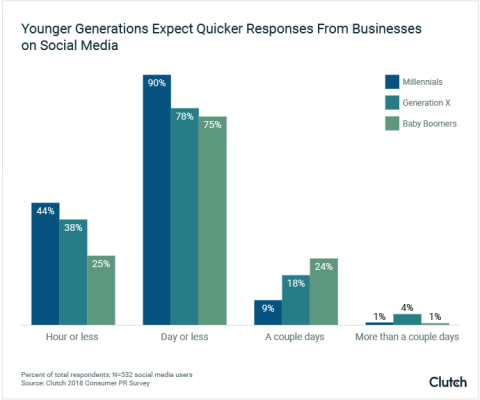
Fewer Generation Xers ages 35 to 54 (78%) and baby boomers ages 55 and older (75%) expect companies to respond within a day or less, and much fewer Generation Xers (38%) and baby boomers (25%) than millennials expect companies to respond within an hour or less.
Millennials expect brands to respond to social media comments more quickly because social media fosters a culture that values instant gratification.
“With living and growing up in a digital world comes instant gratification, expression, and responses,” said Jason Sherman, founder and CEO of SHERMAN Communications and Marketing, Inc, a PR firm in Chicago. “When [millennials] take that mindset to the world as a consumer, it doesn’t really change.”
People, especially millennials and Generation Xers, expect businesses to interact with them on social media. Meeting this expectation can be difficult but doing so can earn a company loyal consumers.
Melissa Meade is a writer who cited Canva, an online graphic design platform, as one of her favorite companies. To her, an active social media presence shows that a company prioritizes its consumers.
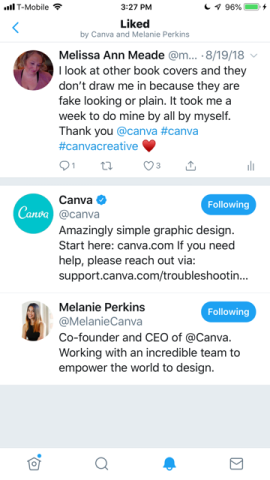
When Canva’s CEO liked one of Meade’s designs on Twitter, Meade became a loyal customer.
“This company is run so well that the CEO even notices posts of consumers and likes them,” Meade said. “Acknowledging customers in a small sense transforms a relationship, at least for me. That tells me the company cares and is listening.”
“Acknowledging customers in a small sense transforms a relationship, at least for me. That tells me the company cares and is listening.”
Brands that acknowledge both positive and negative comments about them on social media can engage with customers (and potential customers) while promoting their brand.
Having an active, consistent social media presence will increasingly be important for businesses to earn the younger generation’s trust and loyalty as this age group gains more purchasing power and becomes the majority consumer base.
Men tend to have higher expectations of companies on social media.
More men (82%) than women (72%) expect brands to respond to comments on social media.

In addition, more men (46%) than women (33%) expect companies to respond to comments on social media within an hour or less.
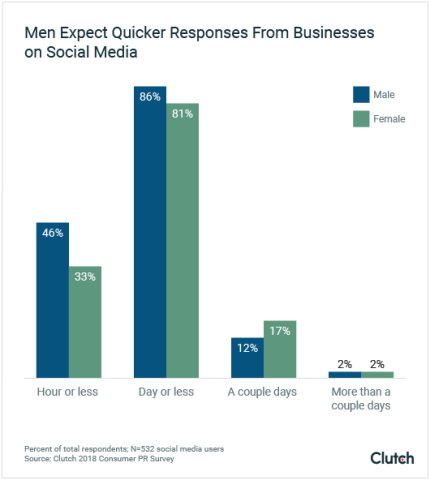
These differences between men and women may allude to differences in how men and women are taught to voice concerns.
“I think women sometimes feel they have to ask permission to complain,” said Laura Reagen, CEO of Activate Health, a healthcare advertising and PR agency. “It’s a societal thing, especially with older women who grew up feeling like they didn’t want to be too loud or too bossy. Women may sometimes feel judged on a different level.”
Some women may not be comfortable making comments on social media or may choose to express concerns in a different way.
“It may be a societal issue that will start to change,” Reagen said.
Whether it’s because some women don’t feel comfortable voicing complaints on social media or because they prefer a different method, this 10% and 13% difference could prove to be especially important to industries with a large female consumer base, such as fashion, wellness, and travel.
People often only show the best, most flattering aspects of their lives on social media. Although this may be OK for individuals, it’s important for companies to engage with criticism online.
Nearly half of people (45%) say they would view a brand more positively if it responded to negative comments on social media.

PR experts say that this doesn’t mean your response has to “fix” the problem at hand – consumers just want to know companies acknowledge and respect their concerns.
“It’s not like we’re telling people, ‘You have to fix this immediately within a day or less or hour or less,’” Reagen said. “But your response has to make people feel like they’ve been heard.”
Companies show they are listening to and care about their customers by acknowledging comments.
This simple act can go a long way in the eyes of consumers.
“Being able to show the way that your company responds in a crisis is actually helpful because customers get reassurance that if something goes wrong, your business will take care of them,” said Melina Palmer, a behavioral economist and founder of The Brainy Business, a podcast that explores topics relating to behavioral economics and marketing.
How companies respond to other consumers on social media indicates how they treat all of their customers.
According to Palmer, when people read negative or positive comments about a company or a review online, they subconsciously place themselves in the situation.
“Our brains have what are called ‘mirror neurons,’” Palmer said. “When it sees something happen to somebody else, it can’t distinguish between what happened to that other person and what happened to itself. That’s why stories and these firsthand accounts are really impactful on the brain.”
Mirror neurons enable us to connect with other people’s experiences but make it difficult for our subconscious brain to distinguish between our own experience and that of others.

According to Palmer, when consumers read negative comments about a company on social media, they place themselves in that scenario, similar to when a person sees someone else get a paper cut and “feels” it themselves.
If the company responds to comments on social media, the consumer may feel secure knowing that the company cares about its consumers.
Social media makes it easy for consumers to voice complaints and praise on platforms that everyone, especially potential customers, can see.
Seventy-two percent (72%) of people are likely to recommend a company to others if they have a positive social media experience with that company.

People can see what a brand is really like through social media. When consumers post photos to Instagram or tweet about their experience, it sends an authentic message about that brand to other consumers.
“Humans are inherently social creatures by design,” said Nick Hobson, a social organizational psychologist and the director of science and research of PsychologyCompass, which offers automated cognition coaches. “What social media does is it takes that very natural instinct in humans and amplifies it ... We look to our friends and connections on these platforms for information about how to buy products or vet vendors.”
When consumers see that others they follow or engage with on social media have a positive experience with a certain company, they might be more inclined to do business with that company.
Many businesses embrace reviews on social media, acknowledging their importance in presenting their brand online and attracting new customers.
Dan Strutt’s app development company, Sappsuma, is about to release the Starfish app, which allows businesses to collect more reliable feedback and customers to post feedback directly to their review site of choice, such as Yelp and Facebook.
“We’ve designed it predominantly to be an automated way of collecting feedback and publishing this feedback online,” Strutt said. “That’s almost like a small, automated, digital PR company.”
Strutt’s app automates feedback collection, making it easier for a company’s PR team to manage feedback and reviews.
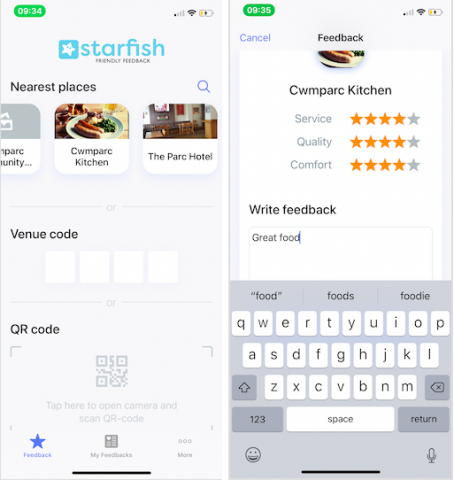
Companies that found consolidating and analyzing feedback to be challenging inspired the app.
“Seventy-four percent (74%) of people say that positive reviews make them trust the business more,” Strutt said. “People now trust online reviews and feedback just as much as they trust their friends. You really need to be active on it, and if you’re not, you’re missing out on a really big opportunity.”
The number of consumers who make buying decisions based on online reviews and feedback is increasing, presenting companies with new opportunities to promote their brand through social media reviews.
The nature of customer service – one of the most traditional avenues of PR – is evolving with consumers’ expectations for web-based communication.
“You can’t call Netflix on the phone and complain,” Reagen said. “The expectation is you’re going to solve this online.”
Social media represents the present and future of customer service, and most people (58%) agree that it makes customer service easier for consumers.

Only 9% of people think social media makes customer service more difficult. 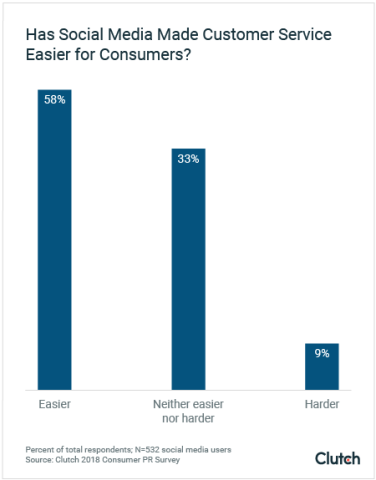
Consumers can expect quicker and more direct responses with social media.
“On social … the larger community as a whole sees you trying to address the customer,” Sherman said. “Everything is being tracked. You have an awareness of being heard that you never had before.”
Social media also makes it easier for consumers to hold businesses accountable for inconsistencies and shortcomings.
Treating social media as another avenue of customer service allows businesses to show the world how they handle their customers’ comments.
Many businesses now offer the ability for customers to contact them through more private forms of social media, such as Facebook Messenger. This allows consumers to get in touch with businesses easily, even while traveling.
Bernard Sury, co-founder of GuruWalk, a community of free walking guides, was traveling in Colombia when his flight was canceled. KLM Royal Dutch Airlines rescheduled his flight for a different day at a different time, but Sury needed an earlier flight.
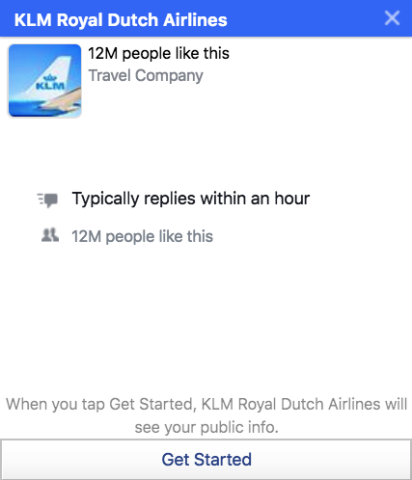
He contacted KLM through Facebook Messenger, and his positive experience impacted his view of the airline.
“I received a quick and relevant [personalized] answer,” Sury said. “And the whole conversation was in my own language (French). I spent a lot of money on these plane tickets, so I was really happy to experience such great customer service.”
KLM’s personalized approach to customer service on social media turned Sury into a loyal customer.
“With this experience, I'm definitely more likely to recommend KLM to friends and family and also more likely to book another flight with this company,” Sury said.
Using social media as an avenue of customer service not only makes it easier for consumers but can make it easier for businesses as well.
Although social media gives consumers more power, it also empowers businesses.
“There’s certainly an empowerment to the consumer to share feedback and express themselves when they’re unhappy,” Somal said. “But a business is also empowered with the same platform and the same opportunities.”
Knowing how to use social media as a PR tool can help businesses grow and elevate their brand.
“[Social media management] is a lot of responsibility for an individual,” Reagen said. “Every comment that you reply to and everything you’re posting reflects on that brand, the brand values, and the brand profession.”
Despite the challenges businesses may face with social media, it presents even more possibilities.
Lisa Strong is the director of marketing for S.D. Strong Distilling, a distilling company in Missouri with a unique marketing challenge: It’s located in a cave.
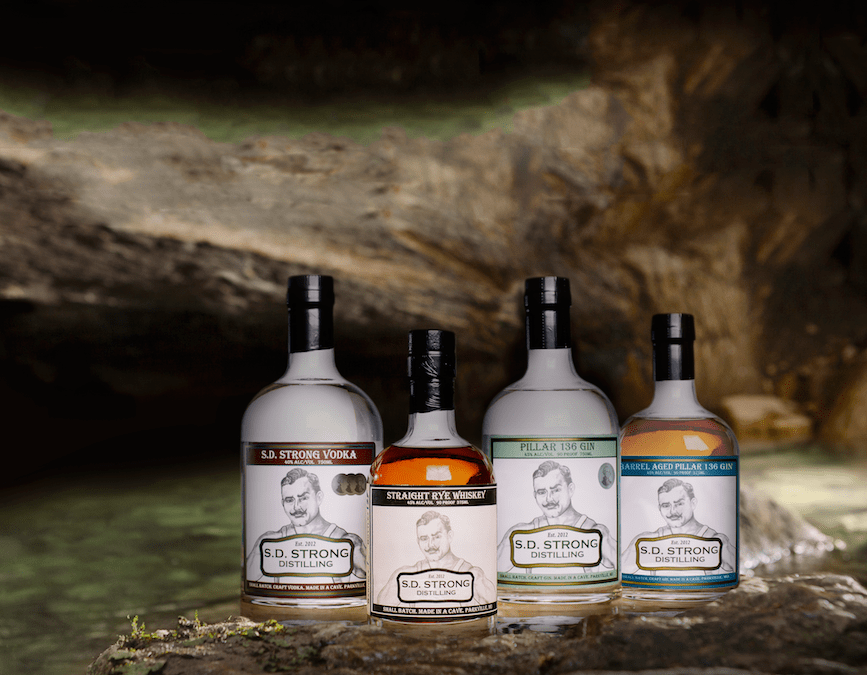
“Being in a cave is a little challenging because you don’t have any visibility,” Strong said. “We use social media to reach out to people.”
Strong uses social media to promote the distillery’s brand, increase visibility, and engage with visitors to compensate for the unique challenges that come with its location in a cave.
S.D. Strong Distilling reaches more people and shows the people behind its brand by interacting with people on social media.
For example, Strong was waiting for a connecting flight in Atlanta when she saw a man in an S.D. Strong Distilling T-shirt. She posted about the experience on social media.
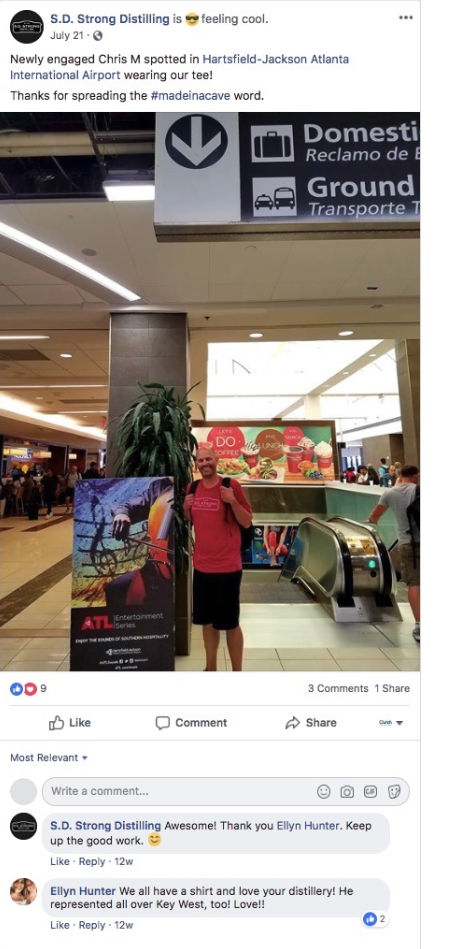
Using social media as another form of communication helps businesses like S.D. Strong Distilling engage with customers while humanizing their brand.
Social media presents both benefits and challenges for businesses looking to manage their online reputation and social media presence.
Consumers’ expectations of companies and their social media presence are rising as social media becomes increasingly entangled in our daily lives.
Businesses have the unique opportunity to connect with customers in an authentic way when they use social media proactively as part of their PR strategy.
Clutch surveyed 532 people from across the U.S. who have used social media in the past week.
Most survey respondents are female (64%), and 36% are male.
Forty-two percent (42%) are millennials (18-34), 35% are Generation Xers (25-54), and 23% are baby boomers (55+).


